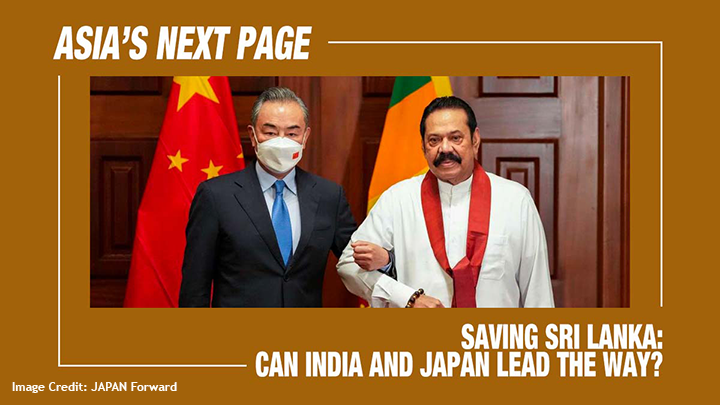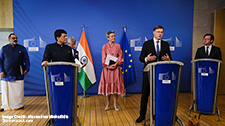Saving Sri Lanka: Can India and Japan Lead the Way?

Jagannath Panda
Introduction:
On September 1, under the new President Ranil Wickremesinghe, crisis-plagued Sri Lanka reached a staff-level agreement with the International Monetary Fund (IMF) for a $2.9 billion USD bailout package over 48 months. This was incumbent upon certain conditions such as “financial assurances” from official creditors (referring to debt relief measures) and additional financing in order to stabilize the Sri Lankan economy in the short term and promote sustainable, inclusive growth in the future.
Soon after, Japanese Finance Minister Shunichi Suzuki urged China and India, among other creditors, to discuss a plan of action for Sri Lanka’s debt restructuring.
You can find the full article on JAPAN Forward’s website. This article is part of the [Asia’s Next Page] series on JAPAN Forward. Find other articles in the series by Dr. Jagannath Panda, here.
Related Publications
-
Navigating the Indo-Pacific: How Australia and the EU Can Partner for Peace, Stability, and Prosperity
To navigate the choppy waters of the Indo-Pacific, the EU and Australia must be on the same wavelength regarding shared interests in rules, values, and an open and liberal economic […]
-
ISDP Annual Report 2023
ISDP’s Annual Report for the year 2023. We look back on 2023, a year in which tensions and conflicts captured the strategic space in ISDP’s focus areas, making headlines around […]
-
China’s Pursuit of Food and Energy Security in the Indian Ocean: Consequences for India’s Development
China and India are still predominantly rising powers. They are strongly inclined to achieve food and energy security, two priority areas for any nation with a vast population. The possibility […]
-
EU-Thailand FTA Negotiations: IUU Fishing and Human Rights Remain Obstacles
Thailand’s fishing industry, which at its height saw as many as 200,000 migrant workers from neighboring Laos, Myanmar, and Cambodia caught in a brutal system of abuse, withered global criticism […]
-
Trade, Connectivity and Supply Chains in EU-India Relations
In the decade and a half since 2007 when the EU and India first started their FTA negotiations, the world economic order has undergone a sea change. During that period, […]




